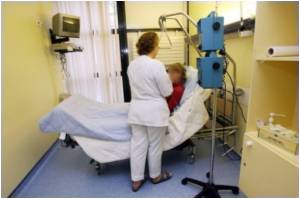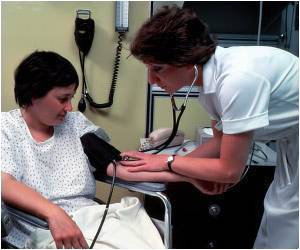Soon after a cancer diagnosis, when Group Health patients received support from a nurse navigator, or advocate, they had better experiences and fewer problems with their care—particularly in health information, care coordination, and psychological and social care.

Patients with a nurse navigator reported feeling better supported emotionally and more involved in their care. They also said they were better informed and more prepared for the future. And they tended to feel that the health care team had gone out of their way to make them feel better emotionally.
"Hearing that you have cancer is so difficult," said lead author Ed Wagner, MD, MPH, a senior investigator at Group Health Research Institute and director emeritus of the Institute's MacColl Center for Health Care Innovation. Right after a cancer diagnosis, patients and their families often need extra help: with information, translating medical jargon, psychological and social support, and coordinating care from various health providers. That's what Dr. Wagner learned earlier from studying the perspectives of patients, families, providers, and experts around the country.
"It makes sense that patients would benefit from having a single point person devoted to providing support and coordination of services," said Dr. Wagner's coauthor Ruth McCorkle, PhD, RN, the Florence Schorske Wald professor of nursing at Yale School of Nursing and a professor of epidemiology at Yale School of Public Health. "Oncology nurse navigator programs are proliferating across the country, but they are highly variable because there hasn't been much rigorous evidence."
In this randomized controlled trial, half of the 251 adult patients newly diagnosed with cancer were assigned to an oncology nurse navigator to help them for four months. Starting two weeks after the diagnosis, the nurse navigator initiated weekly phone calls and contacted each patient an average of 18 times, including meeting in person at least once with each patient: for instance, accompanying them to a doctor's appointment.
The other group of the patients received "enhanced usual care" consisting of educational material designed by a patient advisory committee. Most (190) of the patients had breast cancer, but 30 had lung and 31 had colon or rectal cancer. Patient-reported outcomes were measured at baseline, four months, and one year.
Overall costs of health care, including the costs of the intervention, didn't rise at all with the nurse navigator intervention—and in lung cancer patients, they might have actually declined. No overall changes were detected in patients' quality of life or depression. "That might have been because our patients had high quality of life to start with," Dr. Wagner said, "and our way of measuring that might not have been sensitive enough."
Group Health was so impressed with this work that it has already incorporated an oncology nurse navigator into usual care for women newly diagnosed with breast cancer at its Capitol Hill campus—even before the research was published.
Also, the Group Health Foundation has awarded a Partnership for Innovation grant to Drs. Wagner and McCorkle's coauthor Evette J. Ludman, PhD, a senior research associate at Group Health Research Institute, to implement and evaluate a peer support program for women with breast cancer.
Source-Eurekalert
 MEDINDIA
MEDINDIA




 Email
Email










